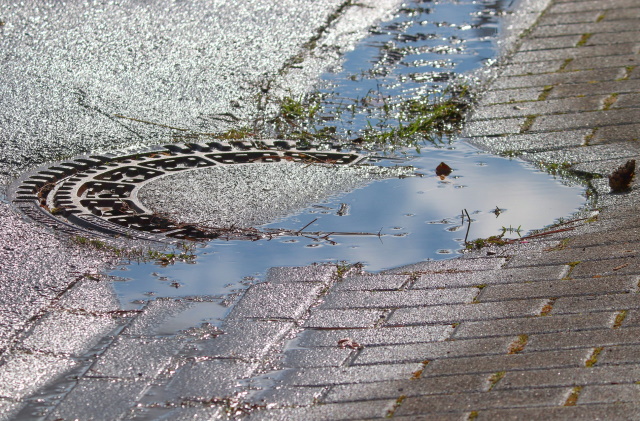
Sewer and drain cleaning can be a complex and potentially hazardous task, especially if you are not familiar with the proper techniques and tools required for the job. If you’re unsure or uncomfortable handling the task yourself, it’s always best to seek professional assistance.
When it comes to efficient sewer and drain cleaning, here are some tips to help you get started:
Assess the situation: Determine the severity of the clog or blockage. Is it a minor clog that can be easily cleared? Or is it a more significant issue that may require professional assistance? Understanding the problem will help you choose the right cleaning method.
Use protective gear: Remember to always prioritise safety when working with drains and plumbing systems. Before you begin any cleaning tasks, put on gloves, goggles, and a face mask to protect yourself from potential hazards, such as harmful chemicals or sewer gases.
Clear debris: Start by removing any visible debris, such as leaves, twigs, or hair, from the drain or sewer opening. Use gloves or a tool like a drain snake or long-handled brush to dislodge and remove the blockage.
Flushing with water: If the blockage is not severe, try flushing the drain or sewer line with water. Use a garden hose or a high-pressure water jet to force water through the system, which may help dislodge and clear smaller clogs.
Hot water and dish soap: Boiling water can help dissolve grease and soap clogs. Carefully pour it down the drain, followed by a few tablespoons of dish soap. Let it sit for a few minutes, and then flush with hot water. This method works well for kitchen sinks and bathroom drains.
Baking soda and vinegar: This classic household combination can help remove minor clogs. Start by pouring a pot of boiling water down the drain. Then, pour half a cup of baking soda followed by half a cup of vinegar. Cover the drain and let the mixture fizz for about 15 minutes. Finally, flush with hot water.
Use a plunger: For minor clogs, a plunger can be a handy tool. Make sure you have the right plunger for the job—flat-bottomed plungers are better for sinks and showers, while flanged plungers work well for toilets. Create a tight seal and use a vigorous up-and-down motion to dislodge the clog.
Plumbing snake or auger: For more stubborn clogs, a plumbing snake or auger can be effective. Drain snakes or augers are designed to navigate through pipes and break up clogs. Insert the snake into the drain and rotate it clockwise while pushing it forward. This action should help break up the clog, clear the line, and allow water to flow freely again.
Bioenzyme or drain cleaners: Bioenzymes are environmentally friendly alternatives to harsh chemical drain cleaners. They contain natural bacteria and enzymes that break down organic matter in the pipes.
Chemical cleaners: Chemical drain cleaners can be effective for clearing minor clogs caused by grease, hair, or soap scum. These cleaners are often caustic and can be harmful to both you and the environment. Use them with caution and carefully follow the manufacturer’s instructions on the product for best results.
Hydro jetting: Hydro jetting is a highly effective method for clearing stubborn clogs and blockages. It involves using a specialised machine that sprays high-pressure water into the sewer or drain line, effectively removing debris and buildup. Hydro jetting is best performed by professionals with the appropriate equipment and training.
Regular maintenance: To prevent future clogs, it’s important to practice regular maintenance. Use drain covers or strainers to catch hair, food particles, and other debris. Avoid pouring grease, oil, and coffee grounds down the drain. Additionally, periodically flush drains with hot water to help clear any build-up.
Schedule regular maintenance for your sewer and drain system. This includes periodic inspections, cleaning, and flushing with water.
Also Read: Sewage Backup: Common Causes & Prevention Tips
Biosite Cleanup Can Provide You Peace of Mind with Effective Sewer Drain Cleaning
If you’re dealing with a persistent or severe clog that you can’t clear on your own, or uncomfortable performing this task, it’s best to seek professional help. Biosite Cleanup has the necessary knowledge and experience to tackle even the toughest clogs and ensure the long-term health of your plumbing system. Our sewer and drain cleaning specialists can handle more challenging cleaning tasks and can ensure that the job is done safely and effectively. They have the expertise and specialised equipment to tackle complex sewer and drain issues. They can diagnose the root cause of the clog or blockage and implement the appropriate solutions to resolve the issue.
Attempting to clean the sewer and drains on your own, without the required expertise, might lead to further damage, increased costs, or even health hazards if not handled properly. So, if you encounter sewer or drain issues that you are not comfortable handling, don’t hesitate to reach out to one of our licensed and qualified experts. It’s better to leave this job to Biosite Cleanup’s Sewage Cleanup team to ensure the job is done correctly and to avoid any potential risks.
Reach us on 0409037634 or email us at bryan@biositecleanup.com.au. Our areas of operation are Goulburn, Canberra, Batemans Bay and surrounding areas of NSW.
